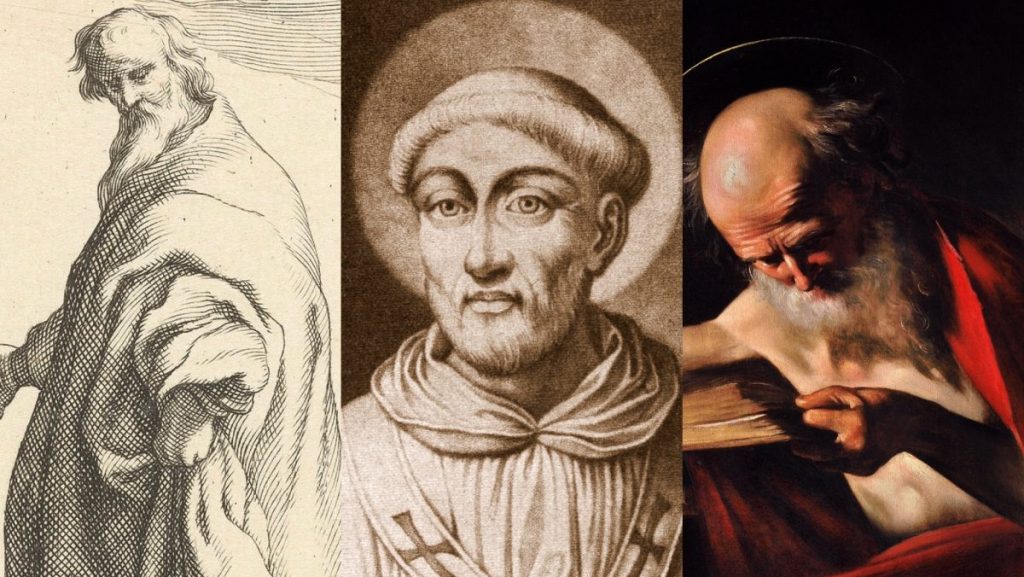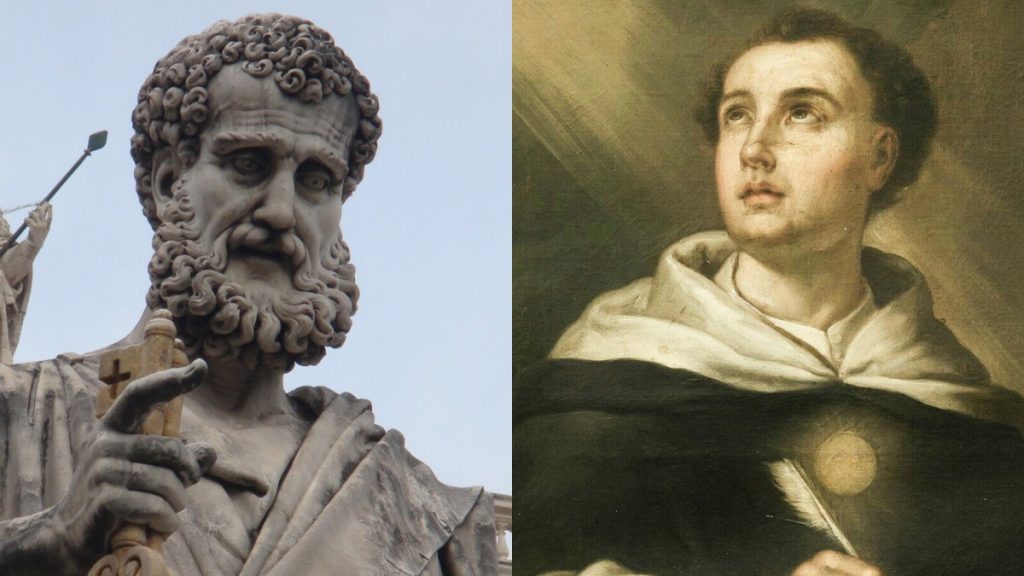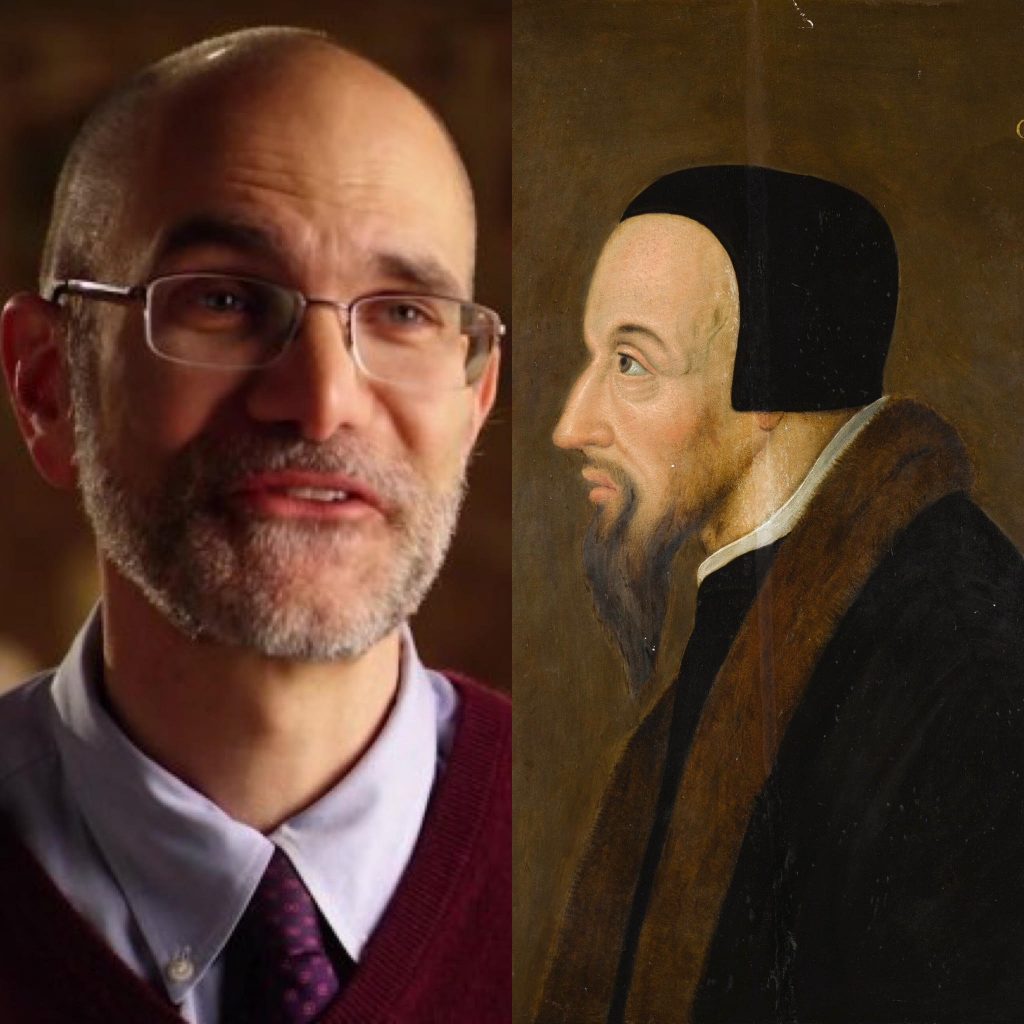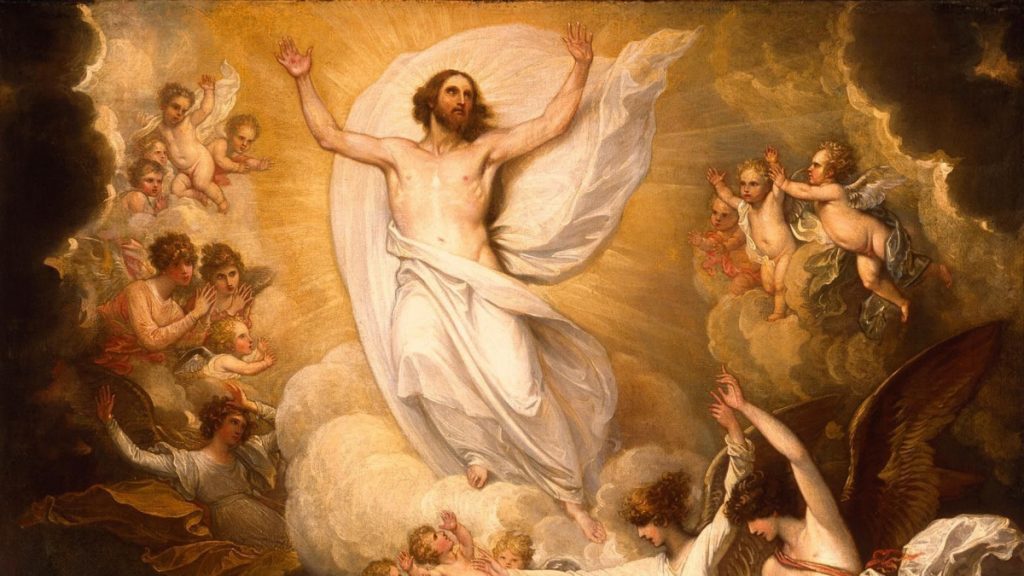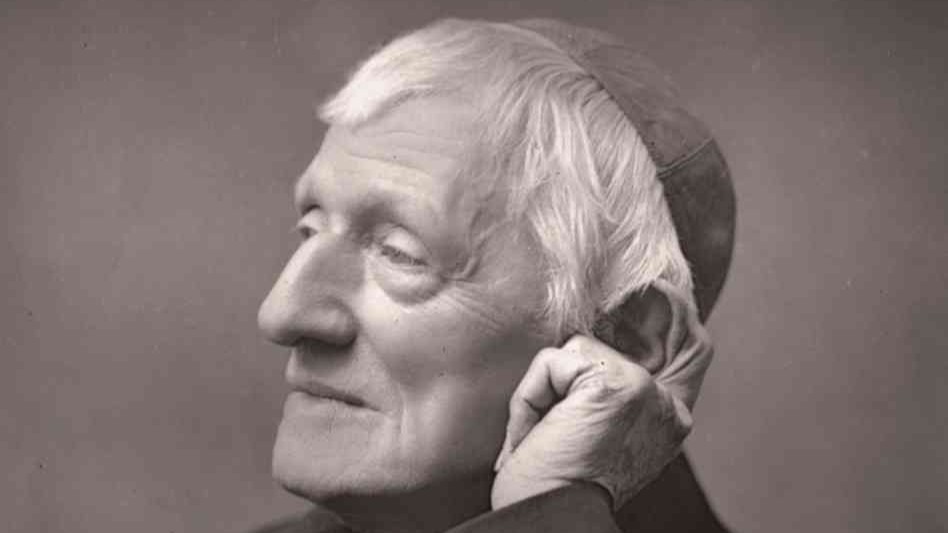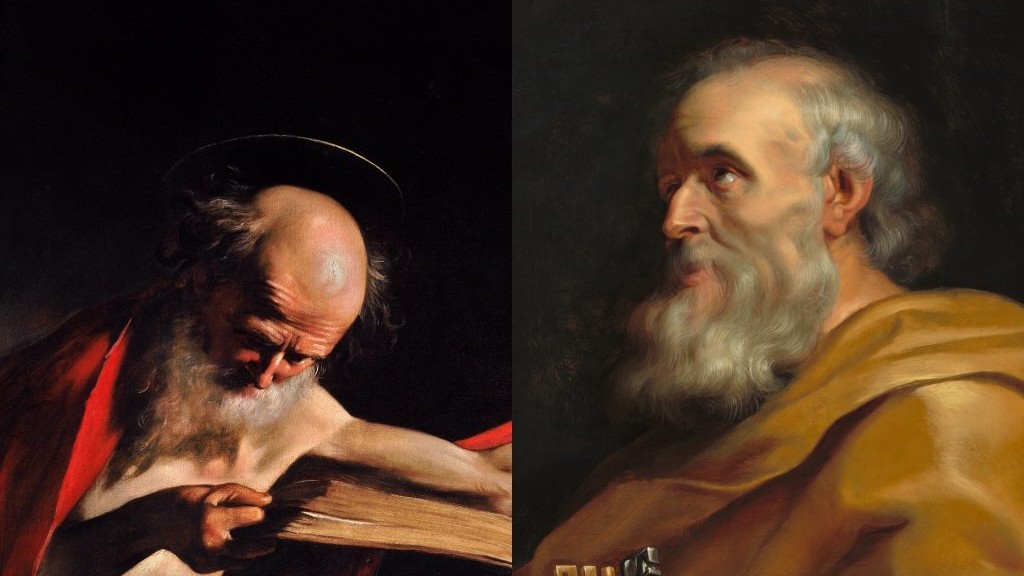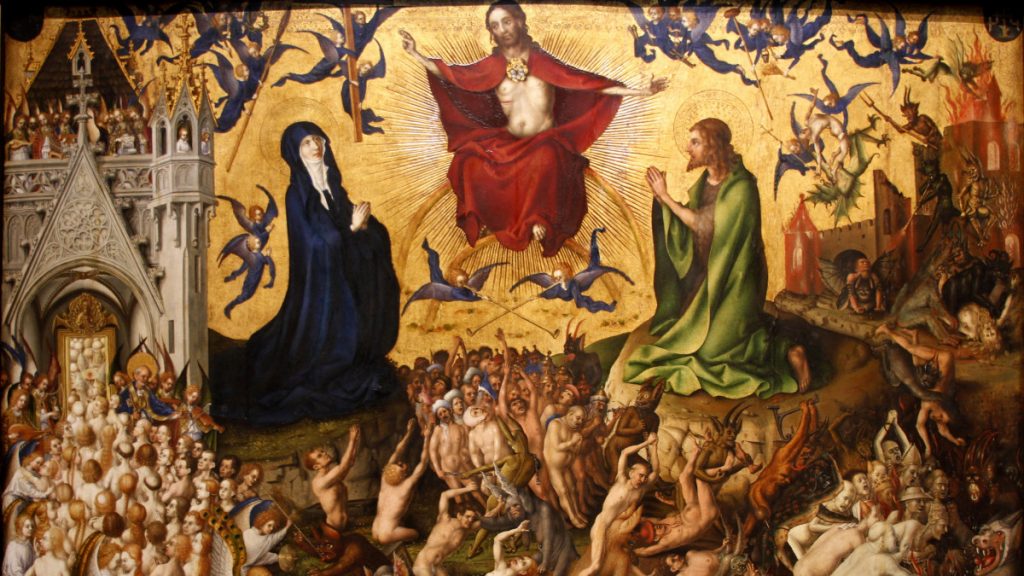(Updated July 15, 2025)
This Author Quote Archive collects pertinent quotes from the Ecclesiastical Writer, Sozomen.
Next to each quote are the Topic Quote Archives in which they are included.
This Quote Archive is being continuously updated as research continues. Quotes marked with “***” have not yet been organized into their respective Topic Quote Archives.
Books
Sozomen, Ecclesiastical History (c. 440-43)
- Development of Doctrine | Book 1, Ch. 15
- The Papacy and the Invincibility of the Church | Book 2, Ch. 15 | Book 3, Ch. 8, 10 | Book 6, Ch. 10
- The Sacrament of Confession | Book 7, Ch. 16
- Pagan Attempt to Rebuild the Jerusalem Temple Thwarted | Book 5, Ch. 22
(Book 1, Ch. 5) ***
Pagan desire for purification from sins, and the occult mysteries they used.
I am aware that it is reported by the pagans that Constantine, after slaying some of his nearest relations, and particularly after assenting to the murder of his own son Crispus, repented of his evil deeds, and inquired of Sopater, the philosopher, who was then master of the school of Plotinus, concerning the means of purification from guilt. The philosopher—so the story goes—replied that such moral defilement could admit of no purification. The emperor was grieved at this repulse, but happening to meet with some bishops who told him that he would be cleansed from sin, on repentance and on submitting to baptism, he was delighted with their representations, and admired their doctrines, and became a Christian, and led his subjects to the same faith. It appears to me that this story was the invention of persons who desired to vilify the Christian religion. Crispus, on whose account, it is said, Constantine required purification, did not die till the twentieth year of his father’s reign; he held the second place in the empire and bore the name of Caesar and many laws, framed with his sanction in favor of Christianity, are still extant. That this was the case can be proved by referring to the dates affixed to these laws, and to the lists of the legislators. It does not appear likely that Sopater had any intercourse with Constantine whose government was then centered in the regions near the ocean and the Rhine; for his dispute with Maxentius, the governor of Italy, had created so much dissension in the Roman dominions, that it was then no easy matter to dwell in Gaul, in Britain, or in the neighboring countries, in which it is universally admitted Constantine embraced the religion of the Christians, previous to his war with Maxentius, and prior to his return to Rome and Italy: and this is evidenced by the dates of the laws which he enacted in favor of religion. But even granting that Sopater chanced to meet the emperor, or that he had epistolary correspondence with him, it cannot be imagined the philosopher was ignorant that Hercules, the son of Alcmena, obtained purification at Athens by the celebration of the mysteries of Ceres after the murder of his children, and of Iphitus, his guest and friend. That the Greeks held that purification from guilt of this nature could be obtained, is obvious from the instance I have just alleged, and he is a false calumniator who represents that Sopater taught the contrary.
I cannot admit the possibility of the philosopher’s having been ignorant of these facts; for he was at that period esteemed the most learned man in Greece.
Although, as we have shown, religion was in a flourishing condition at this period, yet the churches were disturbed by sore contentions; for under the pretext of piety and of seeking the more perfect discovery of God, certain questions were agitated, which had not, till then, been examined.
Arius was the originator of these disputations. He was a presbyter of the church at Alexandria in Egypt, and was at first a zealous thinker about doctrine, and upheld the innovations of Melitius. Eventually, however, he abandoned this latter opinion, and was ordained deacon by Peter, bishop of Alexandria, who afterwards cast him out of the church, because when Peter anathematized the zealots of Melitius and rejected their baptism, Arius assailed him for these acts and could not be restrained in quietness. After the martyrdom of Peter, Arius asked forgiveness of Achillas, and was restored to his office as deacon, and afterwards elevated to the presbytery. Afterwards Alexander, also, held him in high repute, since he was a most expert logician; for it was said that he was not lacking in such knowledge. He fell into absurd discourses, so that he had the audacity to preach in the church what no one before him had ever suggested; namely, that the Son of God was made out of that which had no prior existence, that there was a period of time in which he existed not; that, as possessing free will, he was capable of vice and virtue, and that he was created and made: to these, many other similar assertions were added as he went forward into the arguments and the details of inquiry. Those who heard these doctrines advanced, blamed Alexander for not opposing the innovations at variance with doctrine. But this bishop deemed it more advisable to leave each party to the free discussion of doubtful topics, so that by persuasion rather than by force, they might cease from contention; hence he sat down as a judge with some of his clergy, and led both sides into a discussion. But it happened on this occasion, as is generally the case in a strife of words, that each party claimed the victory. Arius defended his assertions, but the others contended that the Son is consubstantial and co-eternal with the Father. The council was convened a second time, and the same points contested, but they came to no agreement amongst themselves. During the debate, Alexander seemed to incline first to one party and then to the other; finally, however, he declared himself in favor of those who affirmed that the Son was consubstantial and co-eternal with the Father, and he commanded Arius to receive this doctrine, and to reject his former opinions. Arius, however, would not be persuaded to compliance, and many of the bishops and clergy considered his statement of doctrine to be correct. Alexander, therefore, ejected him and the clergy who concurred with him in sentiment from the church. Those of the parish of Alexandria, who had embraced his opinions, were the presbyters Aithalas, Achillas, Carpones, Sarmates, and Arius, and the deacons Euzoius, Macarius, Julius, Menas, and Helladius.
Many of the people, likewise, sided with them: some, because they imagined their doctrines to be of God; others, as frequently happens in similar cases, because they believed them to have been ill-treated and unjustly excommunicated. Such being the state of affairs at Alexandria, the partisans of Arius, deeming it prudent to seek the favor of the bishops of other cities, sent legations to them; they sent a written statement of their doctrines to them, requesting them that, if they considered such sentiments to be of God, they would signify to Alexander that he ought not to molest them; but that if they disapproved of the doctrines, they should teach them what opinions were necessary to be held.
This precaution was of no little advantage to them; for their tenets became thus universally disseminated, and the questions they had started became matters of debate among all the bishops…
There each [St. Athanasius, and Paul, bishop of Constantinople] laid his case before Julius, bishop of Rome. He on his part, by virtue of the Church of Rome’s peculiar privilege, sent them back again into the East, fortifying them with commendatory letters; and at the same time restored to each his own place, and sharply rebuked those by whom they had been deposed. Relying on the signature of the bishop Julius, the bishops departed from Rome, and again took possession of their own churches, forwarding the letters to the parties to whom they were addressed. These persons considering themselves treated with indignity by the reproaches of Julius, called a council at Antioch, assembled themselves and dictated a reply to his letters as the expression of the unanimous feeling of the whole Synod. It was not his province, they said, to take cognizance of their decisions in reference to any whom they might wish to expel from their churches; seeing that they had not opposed themselves to him, when Novatus was ejected from the church. These things the bishops of the Eastern church communicated to Julius, bishop of Rome.
(Book 3, Ch. 5, 8, 10)
*** (Ch. 5) …Since they were the testers of his faith, they had readily received him; and they believed in the faith which had from the beginning been handed down by tradition… ***
(Ch. 8) …The Roman bishop, on learning the accusation against each individual, and on finding that they held the same sentiments about the Nicaean dogmas, admitted them to communion as of like orthodoxy; and as the care for all was fitting to the dignity of his see, he restored them all to their own churches. He wrote to the bishops of the East, and rebuked them for having judged these bishops unjustly, and for harassing the Churches by abandoning the Nicaean doctrines. He summoned a few among them to appear before him on an appointed day, in order to account to him for the sentence they had passed, and threatened to bear with them no longer, unless they would cease to make innovations. This was the tenor of his letters. Athanasius and Paul were reinstated in their respective sees, and forwarded the letter of [St. Pope] Julius to the bishops of the East. The bishops could scarcely brook such documents, and they assembled together at Antioch, and framed a reply to Julius, beautifully expressed and composed with great legal skill, yet filled with considerable irony and indulging in the strongest threats. They confessed in this epistle, that the Church of Rome was entitled to universal honor, because it was the school of the apostles, and had become the metropolis of piety from the outset, although the introducers of the doctrine had settled there from the East…
(Ch. 10) The bishops of Egypt, having sent a declaration in writing that these allegations were false, and [St. Pope] Julius having been apprised that Athanasius was far from being in safety in Egypt, sent for him to his own city. He replied at the same time to the letter of the bishops who were convened at Antioch, for just then he happened to have received their epistle, and accused them of having clandestinely introduced innovations contrary to the dogmas of the Nicene council, and of having violated the laws of the Church, by neglecting to invite him to join their Synod; for he alleged that there is a sacerdotal canon which declares that whatever is enacted contrary to the judgment of the bishop of Rome is null. He also reproached them for having deviated from justice in all their proceedings against Athanasius, both at Tyre and Mareotis, and stated that the decrees enacted at the former city had been annulled, on account of the calumny concerning the hand of Arsenius, and at the latter city, on account of the absence of Athanasius. Last of all he reprehended the arrogant style of their epistle.
Julius was induced by all these reasons to undertake the defense of Athanasius and of Paul: the latter had arrived in Italy not long previously, and had lamented bitterly these calamities. When Julius perceived that what he had written to those who held the sacerdotal dignity in the East was of no avail, he made the matter known to Constans the emperor. Accordingly, Constans wrote to his brother Constantius, requesting him to send some of the bishops of the East, that they might assign a reason for the edicts of deposition which they had passed.
Though the emperor [Julian the Apostate] hated and oppressed the Christians, he manifested benevolence and humanity towards the Jews. He wrote to the Jewish patriarchs and leaders, as well as to the people, requesting them to pray for him, and for the prosperity of the empire. In taking this step he was not actuated, I am convinced, by any respect for their religion; for he was aware that it is, so to speak, the mother of the Christian religion, and he knew that both religions rest upon the authority of the patriarchs and the prophets; but he thought to grieve the Christians by favoring the Jews, who are their most inveterate enemies. But perhaps he also calculated upon persuading the Jews to embrace paganism and sacrifices; for they were only acquainted with the mere letter of Scripture, and could not, like the Christians and a few of the wisest among the Hebrews, discern the hidden meaning.
Events proved that this was his real motive; for he sent for some of the chiefs of the race and exhorted them to return to the observance of the laws of Moses and the customs of their fathers. On their replying that because the temple in Jerusalem was overturned, it was neither lawful nor ancestral to do this in another place than the metropolis out of which they had been cast, he gave them public money, commanded them to rebuild the temple, and to practice the cult similar to that of their ancestors, by sacrificing after the ancient way.
The Jews entered upon the undertaking, without reflecting that, according to the prediction of the holy prophets, it could not be accomplished [Dan. 9:27]. They sought for the most skillful artisans, collected materials, cleared the ground, and entered so earnestly upon the task, that even the women carried heaps of earth, and brought their necklaces and other female ornaments towards defraying the expense. The emperor, the other pagans, and all the Jews, regarded every other undertaking as secondary in importance to this.
Although the pagans were not well-disposed towards the Jews, yet they assisted them in this enterprise, because they reckoned upon its ultimate success, and hoped by this means to falsify the prophecies of Christ [Matt. 24:2]. Besides this motive, the Jews themselves were impelled by the consideration that the time had arrived for rebuilding their temple.
When they had removed the ruins of the former building, they dug up the ground and cleared away its foundation. It is said that on the following day when they were about to lay the first foundation, a great earthquake occurred, and by the violent agitation of the earth, stones were thrown up from the depths, by which those of the Jews who were engaged in the work were wounded, as likewise those who were merely looking on. The houses and public porticos, near the site of the temple, in which they had diverted themselves, were suddenly thrown down; many were caught thereby, some perished immediately, others were found half dead and mutilated of hands or legs, others were injured in other parts of the body.
When God caused the earthquake to cease, the workmen who survived again returned to their task, partly because such was the edict of the emperor, and partly because they were themselves interested in the undertaking. Men often, in endeavoring to gratify their own passions, seek what is injurious to them, reject what would be truly advantageous, and are deluded by the idea that nothing is really useful except what is agreeable to them. When once led astray by this error, they are no longer able to act in a manner conducive to their own interests, or to take warning by the calamities which are visited upon them.
The Jews, I believe, were just in this state; for, instead of regarding this unexpected earthquake as a manifest indication that God was opposed to the re-erection of their temple, they proceeded to recommence the work. But all parties relate, that they had scarcely returned to the undertaking, when fire burst suddenly from the foundations of the temple, and consumed several of the workmen.
This fact is fearlessly stated, and believed by all; the only discrepancy in the narrative is that some maintain that flame burst from the interior of the temple, as the workmen were striving to force an entrance, while others say that the fire proceeded directly from the earth. In whichever way the phenomenon might have occurred, it is equally wonderful [meaning, full of awe].
A more tangible and still more extraordinary prodigy ensued; suddenly the sign of the cross appeared spontaneously on the garments of the persons engaged in the undertaking. These crosses were disposed like stars, and appeared the work of art. Many were hence led to confess that Christ is God, and that the rebuilding of the temple was not pleasing to Him; others presented themselves in the church, were initiated, and besought Christ, with hymns and supplications, to pardon their transgression.
If anyone does not feel disposed to believe my narrative, let him go and be convinced by those who heard the facts I have related from the eyewitnesses of them, for they are still alive. Let him inquire, also, of the Jews and pagans who left the work in an incomplete state, or who, to speak more accurately, were able to commence it.
The Macedonians, in apprehension of further sufferings, sent deputies to various cities, and finally agreed to have recourse to Valentinian and to the bishop of Rome rather than share in the faith of Eudoxius and Valens and their followers; and when this seemed favorable for execution, they selected three of their own number—Eustathius, bishop of Sebaste; Silvanus, bishop of Tarsus; and Theophilus, bishop of Castabalis—and sent them to the Emperor Valentinian; they likewise entrusted them with a letter, addressed to Liberius, bishop of Rome, and to the other priests of the West, in which they entreated them as prelates who had adhered to the faith approved and confirmed by the apostles, and who before others ought to watch over religion, to receive their deputies with all confirmation, and to confer with them about what should be done in the interval until the affairs of the Church could be approvedly set in order.
Nectarius [Archbishop of Constantinople], about this period, abolished the office of the presbyter whose duty it was to preside over the imposition of penance; and this is the first instance of the suppression of this office in the Church. This example was followed by the bishops of every region. Various accounts have been given of the nature, the origin, and the cause of the abolition of this office. I shall state my own views on the subject.
Impeccability is a Divine attribute, and belongs not to human nature; therefore God has decreed that pardon should be extended to the penitent, even after many transgressions. As in supplicating for pardon, it is requisite to confess the sin, it seems probable that the priests, from the beginning, considered it irksome to make this confession in public, before the whole assembly of the people. They therefore appointed a presbyter, of the utmost sanctity, and the most undoubted prudence, to act on these occasions; the penitents went to him, and confessed their transgressions; and it was his office to indicate the kind of penance adapted to each sin, and then when satisfaction had been made, to pronounce absolution.
As the custom of doing penance never gained ground among the Novatians [heretics], regulations of this nature were of course unnecessary among them; but the custom prevailed among all other heretics, and prevails even to the present day. It is observed with great rigor by the Western churches, particularly at Rome, where there is a place appropriated to the reception of penitents, in which spot they stand and mourn until the completion of the services, for it is not lawful for them to take part in the mysteries; then they cast themselves, with groans and lamentations, prostrate on the ground. The bishop conducts the ceremony, sheds tears, and prostrates himself in like manner; and all the people burst into tears, and groan aloud. Afterwards, the bishop rises first from the ground, and raises up the others; he offers up prayer on behalf of the penitents, and then dismisses them. Each of the penitents subjects himself in private to voluntary suffering, either by fastings, by abstaining from the bath or from diverse kinds of meats, or by other prescribed means, until a certain period appointed by the bishop. When the time arrives, he is made free from the consequences of his sin, and assembles at the church with the people. The Roman priests have carefully observed this custom from the beginning to the present time.
In the church at Constantinople, a presbyter was always appointed to preside over the penitents, until a lady of the nobility made a deposition to the effect, that when she resorted as a penitent to the presbyter, to fast and offer supplications to God, and tarried for that purpose, in the church, a rape had been committed on her person by the deacon. Great displeasure was manifested by the people when this occurrence was made known to them, on account of the discredit that would result to the church; and the priests, in particular, were thereby greatly scandalized. Nectarius, after much hesitation as to what means ought to be adopted, deposed the deacon; and, at the advice of certain persons, who urged the necessity of leaving each individual to examine himself before participating in the sacred mysteries, he abolished the office of the presbyter presiding over penance.From that period, therefore, the performance of penance fell into disuse; and it seems to me, that extreme laxity of principle was thus substituted for the severity and rigor of antiquity. Under the ancient system, I think, offenses were of rarer occurrence; for people were deterred from their commission, by the dread of confessing them, and of exposing them to the scrutiny of a severe judge. I believe it was from similar considerations, that the Emperor Theodosius, who was always zealous in promoting the glory of the Church, issued a law, enacting that women should not be admitted into the ministry, unless they had had children, and were upwards of sixty years of age, according to the precept of the Apostle Paul [1 Tim. 5:9]. By this law it was also decreed, that women who had shaved their heads should be ejected from the churches; and that the bishop by whom such women were admitted should be deposed from the bishopric.
